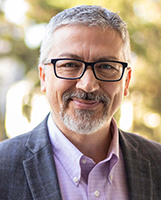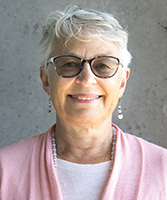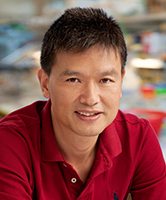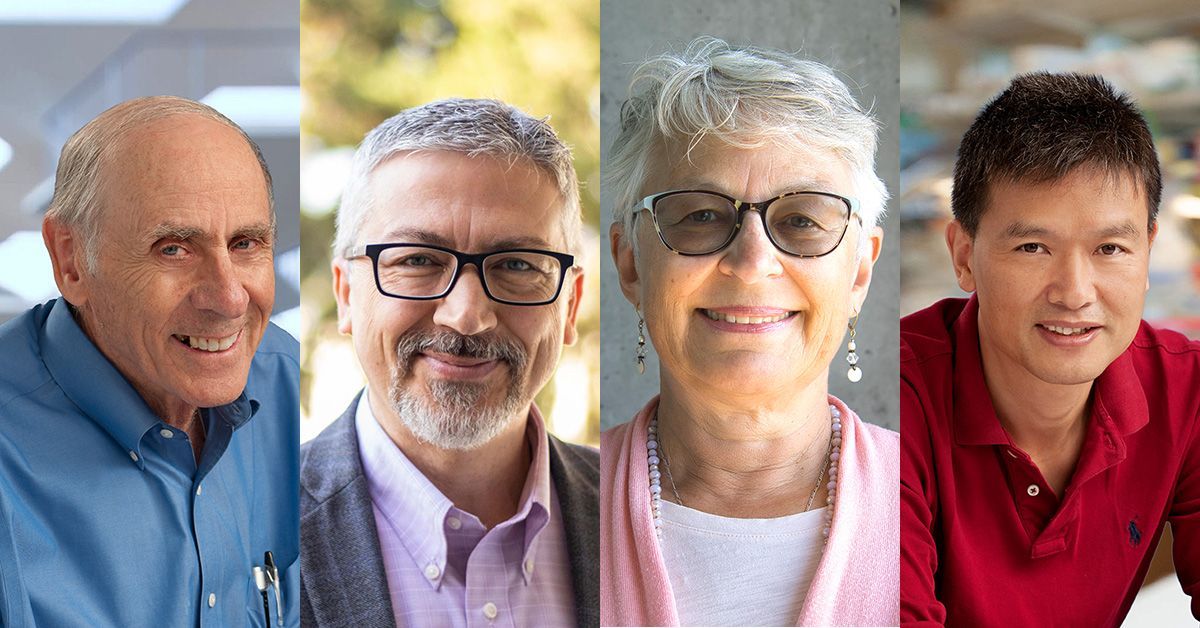Four UC San Diego Scientists Elected AAAS Fellows
The world’s largest general scientific society honors campus experts in Biological Sciences, Chemistry and Physics
Story by:
Published Date
Article Content
Four University of California San Diego researchers have been elected 2022 Fellows of the American Association for the Advancement of Science (AAAS), the world’s largest general scientific organization.
Professors Stuart Brody, Massimiliano Di Ventra, Elizabeth Komives and Yunde Zhao are among 506 scientists, engineers and innovators who have been recognized for their scientifically and socially distinguished achievements by AAAS, publisher of the journal Science.
AAAS will host a new Fellows celebration in spring. “Becoming a AAAS Fellow is a lifetime honor, which comes with an expectation that recipients maintain the highest standards of professional ethics and scientific integrity,” according to AAAS.

Professor Emeritus Stuart Brody, a faculty member in the Department of Molecular Biology, is being honored “for distinguished contributions in teaching, the development of biology at UC San Diego, biochemical genetics and our understanding of the comparative genetics of circadian rhythms, using Neurospora as a model system.” Brody, who joined UC San Diego in 1967, has used biochemical genetics tools on the fungus Neurospora, a type of bread mold, to investigate the inner workings of circadian rhythms. He has analyzed light and the circadian clock, key clock proteins and clock-controlled genes, among other areas. In addition to research, Brody has been recognized for launching the Center for Circadian Biology, endowed academic chairs, UC San Diego’s Distinguished Teaching Award and the School of Biological Sciences’ Founding Faculty Award for Graduate Excellence.

Professor of Physics Massimiliano Di Ventra was recognized for his contributions to “quantum transport in nanoscale systems and in-memory computing.” Quantum transport and nanoscale systems provide a pathway to more desirable electrical, optical and thermal features due to their extremely small size. This can have profound implications on the future of electronics. In-memory or “mem”computing employs memory to both process and store information on the same physical location, similar to how a human brain operates. Last year, Di Ventra was named an IEEE Fellow for this work, a unique honor for a theoretical physicist. He has written several books on nanoscale systems and memcomputing and is co-founder of the company MemComputing Inc. He joined the faculty of UC San Diego in 2004.

Distinguished Professor of Chemistry and Biochemistry Elizabeth Komives was honored for her work “mapping protein interaction surfaces and for integrating biophysical methods to discover novel protein dynamics.” She was the first to demonstrate that monitoring amide hydrogen-deuterium exchange by mass spectrometry could reveal protein-protein interfaces—an approach now widely used to map protein-protein interfaces and to screen for drug binding sites. Komives has since used this approach to discover how proteins change their shape and dynamics when interacting with their partners. Using this approach she has demonstrated communication between proteins in large complexes even extending from one end of a 10-protein complex to the other. Komives, who joined UC San Diego in 1990, is a Searle Scholar and Rita Allen Scholar awardee and has received several awards for teaching excellence.

Professor Yunde Zhao of the Department of Cell and Developmental Biology was cited by AAAS “for distinguished contributions to the field of plant sciences, particularly elucidation of the auxin biosynthesis pathway, pioneering improved CRISPR gene editing technologies and improving homologous recombination efficiency in land plants.” Zhao’s research focuses on the plant hormone auxin, which regulates nearly every aspect of plant growth and development. His laboratory researches auxin biosynthesis, its regulation and other aspects related to plant development. Zhao and his colleagues recently developed an environmental monitoring tool to genetically signal when plants are undergoing fundamental alterations, including changes caused by pollutants and climate changes. In addition to research, Zhao serves the plant biology field as editor-in-chief of the journal Plant Physiology.
Continuing a tradition that started in 1874, AAAS Fellows are considered for the rank of Fellow if nominated by the steering group of their respective AAAS section, by three Fellows or AAAS’s CEO. Steering groups then review nominations and submit a final list for consideration to the AAAS Council, the organization’s policymaking body. The Council is comprised of Board of Directors members, retiring section chairs and two delegates from the National Association of Academies of Science.
The full list of new AAAS Fellows is available here.
— With information provided by AAAS
Share This:
You May Also Like
Stay in the Know
Keep up with all the latest from UC San Diego. Subscribe to the newsletter today.




